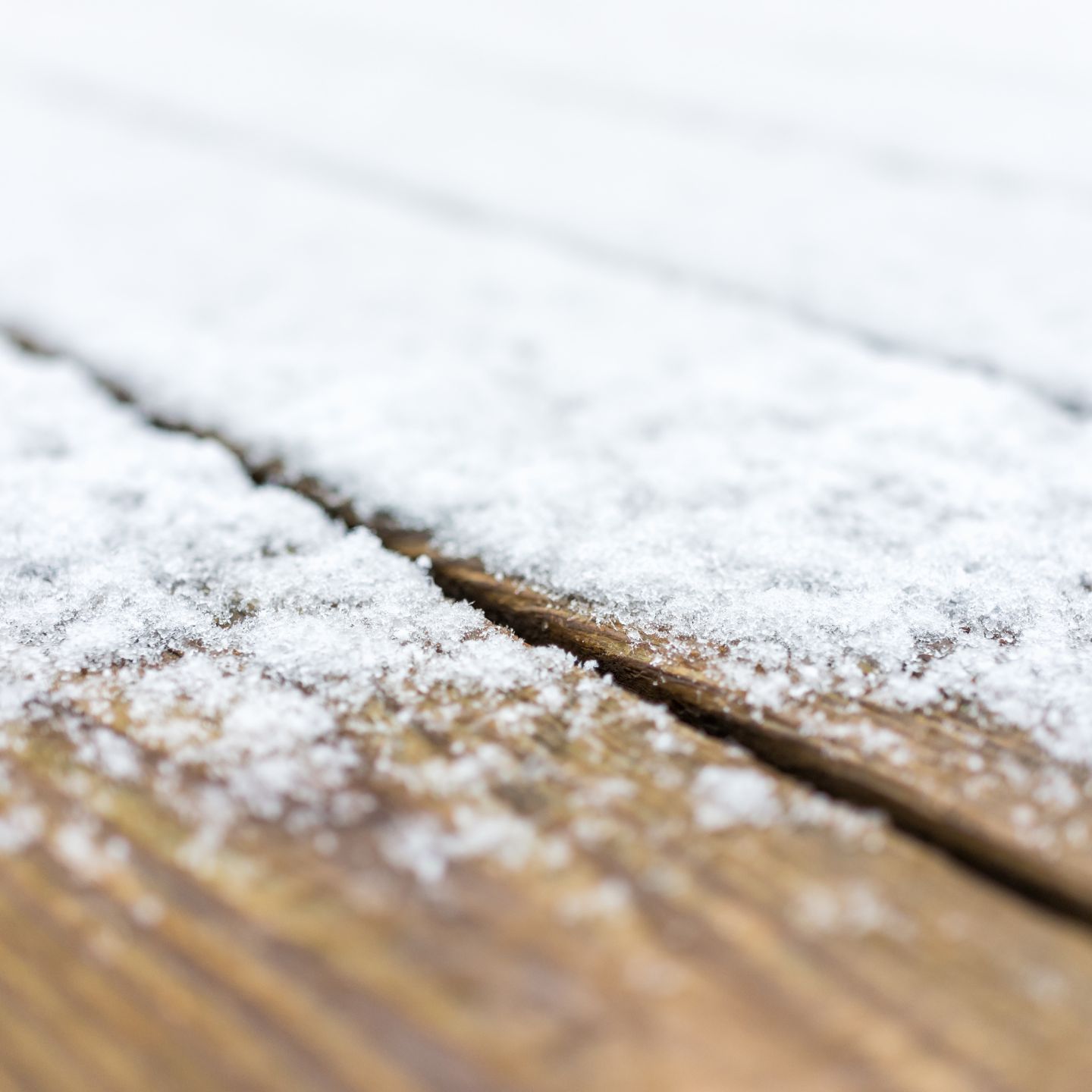
Winter is on its way, and as a cabin owner, you know what that means: it’s time to start preparing for the snowy onslaught. There are many ways to go about this process, but one often overlooked aspect is the act of updating your deck space. Your decking needs to hold up to even the most brutal of winters to be usable come spring. So we’ll explore the best deck materials for withstanding those harsh winters, keeping your cozy cabin retreat comfortable and inviting even in the coldest months.
Pressure-Treated Wood
Pressure-treated wood is the most common and affordable among your weather-resistant decking options. This material undergoes a chemical treatment to resist rot, decay, and insect damage. While it may not be the most exotic or upscale, its durability and cost-effectiveness can make it an attractive option for those looking to maintain a deck during the winter months without breaking the bank.
Composite Decking
If you’re seeking a low-maintenance option with superior durability, composite decking is an excellent candidate. Since it consists of a combination of wood fibers and plastic materials, it requires minimal maintenance (no need for staining or resealing) and resists rot and warping. Additionally, composite decking doesn’t splinter as easily as traditional wood, making it a safer choice for when you’re shoveling on those icy winter days.
Hardwood Decking
For those looking for a more luxurious touch, hardwood decking offers unparalleled resistance to the climate while having a beautiful, natural look. Woods like Ipe, Cumaru, and Tigerwood are ideal choices, as they’re dense and water-resistant, which means they can stand up to snow, ice, and moisture. There are also several Brazilian hardwood decking species to choose from, depending on your aesthetic preferences. Apart from their durability, hardwoods add a touch of elegance and warmth to your cabin retreat.
Aluminum Decking
Another innovative deck material that can withstand harsh winters is aluminum. Although lesser-known, aluminum decking is incredibly durable, lightweight, and low-maintenance. Unlike wood and composite, aluminum won’t rot, crack, or warp. Furthermore, it resists mold and mildew. It also performs exceptionally well in cold climates due to its ability to endure temperature fluctuations. While it may not evoke traditional rustic charm, aluminum decking is an incredibly resilient option that can last for decades.
Vinyl Decking
Vinyl decking, sometimes referred to as PVC decking, is another low-maintenance and durable option. It’s resistant to scratches, staining, and fading, meaning your deck will continue looking pristine even as it battles the winter elements. Vinyl decking is also less slippery when wet, which can be a crucial safety feature during snow and ice-laden months.
Choosing the right decking material for your cabin is about striking a balance between aesthetics, durability, and maintenance. By considering the options outlined above, you can find the perfect fit for your winter retreat. Protecting your investment and ensuring a safe, comfortable space to enjoy nature’s beauty is paramount.

Leave a Reply